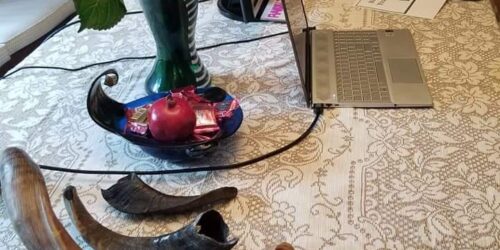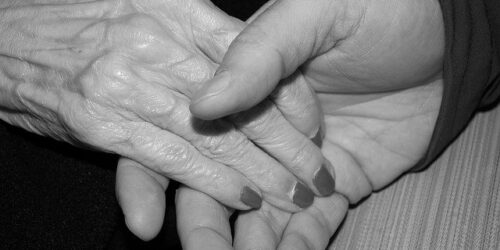Immersion: the total submersion of one’s body in a pool of water. Mikveh: the ritual bath created for this purpose.
Immersing in the mikveh is the final step in the process of conversion for men, women, and children. Traditionally, immersion has also been part of a regular routine for Orthodox women to become “pure” again after menstruation each month. Orthodox men will also visit the mikveh before Shabbat or holidays.<.p>
A mikveh is a “collection” or “gathering” of natural waters in a prescribed setting. The Torah goes into great detail (specifically throughout Leviticus) about the requirements for its construction and use. In Orthodox communities, the practice of mikveh has endured as an essential element of religious life.
In non-Orthodox communities, the practice of consistent immersion has fallen out of favor. To many, it feels uncomfortably gendered for women to be perceived as “impure” or “unclean” during part of the month and to take responsibility for being restored to a state of “cleanliness.”
Yet the idea of immersion in water as a transitional and transformational experience is almost universal. Consider baptism, flotation tank therapy, or the relaxation so many of us feel at an ocean or a lake. There is something incredibly powerful about the feeling of weightlessness while being surrounded by water, the very source of life.
Recently, there has been a movement among liberal Jews to reframe and reclaim the use of the mikveh. With the transformational power of water, the idea of immersion to mark transitional moments has become appealing. All genders are choosing to visit the mikveh as they approach b’mitzvah, celebrating their change in status from child to adult in the Jewish community. An ancient custom of immersing in the 9th month of pregnancy to pray for an easy and healthy delivery is being revived. Many have found immersion to be a powerful ritual after completing cancer treatment or coming through serious illness. Using mikveh rituals as a way to mark the final step in a divorce or as part of a gender transition can be affirming and liberating.
The procedures may seem intimidating at first, but they have a purpose and meaning. Preparation is both physical and spiritual. By bathing and removing all jewelry, all barriers between body and the water are eliminated. Traditional mikveh use consists of three immersions, with an attendant making sure they are “kosher” and complete, with blessings recited. Contemporary mikveh use has developed a whole new set of rituals beginning with private spiritual preparation and then using the three immersions as opportunities to reflect on what has come before, how you feel now in this moment, and moving into the future as a changed person.
So who can visit the mikveh? Anyone, anytime. There are more and more community mikva’ot open to all who would like to immerse. And already created ceremonies can be found for almost any reason – or you can craft your own ritual. You can go once, or monthly, or whenever you feel moved to do so. As a trained Mikveh Guide through Rising Tide Open Waters Mikveh Network, it would be my joy to help you create an immersion experience that is right for you.






